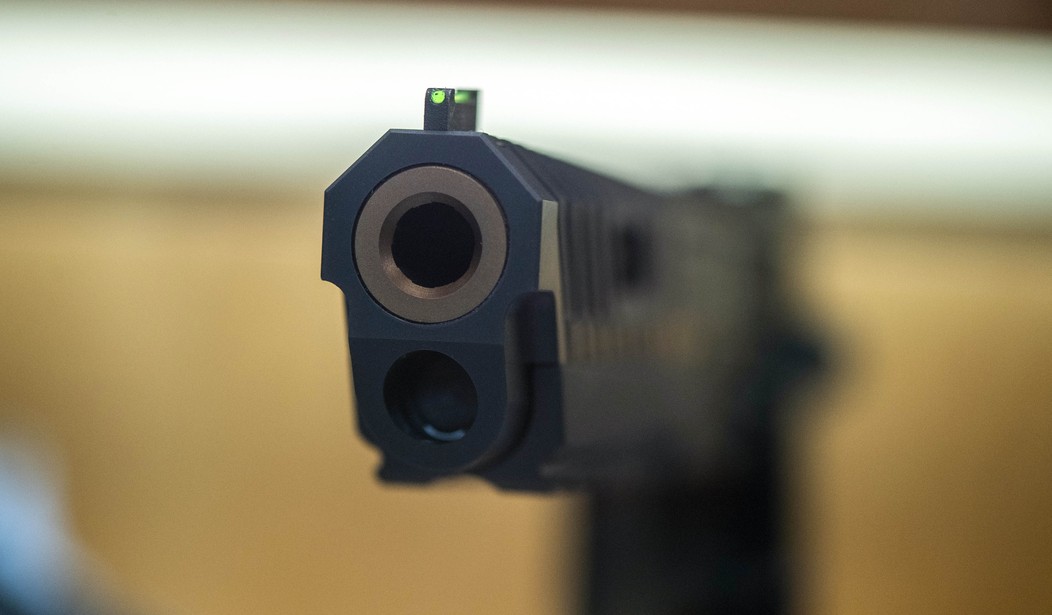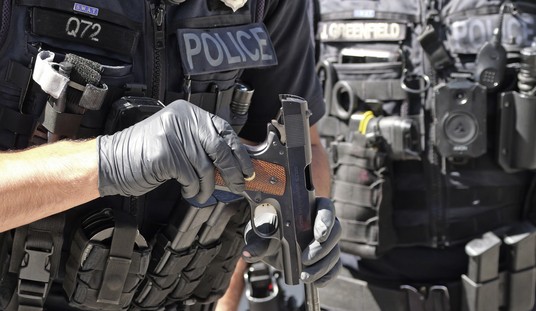Back in 2018 Gov. Phil Murphy proudly touted the signing of a bill "making it illegal in New Jersey to purchase parts to manufacture or distribute information to print 'ghost guns,'", which the governor described as "homemade or 3D printed firearms that are untraceable by law enforcement."
As lawmakers learned this week, however, Garden State scofflaws don't seem to be paying much attention to the prohibition. The State Commission on Investigation held a hearing in Trenton on the issue this week at the behest of Democratic Assemblyman Herb Conaway Jr., and discovered that banning something doesn't make it go away.
Because they’re untraceable, ghost guns tend to be used in multiple crimes, becoming what police call “multi-shoot guns” or “community guns” — used multiple times in a short period of time, often in the same community, investigators and officers who testified Tuesday said.
Investigators shared maps showing shootings that ballistics tests pinned on the same ghost gun. In Newark, investigators linked one ghost gun — still unrecovered — to 10 shootings over 18 months that left four people injured, including a 9-year-old boy and two 17-year-olds. In Trenton, they tied one ghost gun to five shootings over four months that left two people dead and nine injured. That gun was recovered.
Seizure data also shows the uptick in ghost guns, with recoveries rising 600% between 2019 and last year, state police data shows. Police in New Jersey recovered about one ghost gun a week in 2019, but that soared to almost one a day by last year, investigators said.
A 600 percent increase isn't an "uptick". That's a massive increase, and it didn't matter that the state had already criminalized even downloading the files necessary to print parts on a 3D printer.
While the New Jersey law is facing a court challenge, so far the federal judiciary has declined to issue an injunction that would block enforcement of the statute. It remains fully in effect... and completely ineffective at stopping or changing criminal behavior. So what's a lawmaker to do? Make more laws, of course.
But investigators Tuesday said lawmakers must act to close gaps in the law.
They suggested cracking down on online purveyors of gun parts and computer codes that enable people to print firearm parts and heightening penalties for and expanding pretrial detention of gun offenders found to have possessed or used ghost guns or guns used in multiple shootings.
Recent efforts statewide to crack down on repeat gun offenders have contributed to the downward trend in shootings, investigators said.
Legislators also should criminalize the public discharge of a firearm (outside of permitted shooting like hunting and target practice) and beef up penalties for people who fire guns at certain places, much like drug offenses are weightier when committed in school zones, investigators said.
Who would have guessed that cracking down on the most prolific violent offenders would lead to a drop in shootings? You don't need to ban hardware, software, 3D printers, or gun parts to reduce violent crime. In fact, doing that is a waste of time. Focusing on the people who are pulling the trigger is the single most effective way to improve public safety, but New Jersey legislators would much rather go after lawful gun owners.
While investigators claim that this targeted approach is paying off, they also ignored one other big factor: the rise in concealed carry holders. There are now more than 30,000 New Jersey residents with an active carry license; an increase of almost 3,000 percent compared to the pre-Bruen "may issue" numbers. Gun control activists and politicians like Phil Murphy were certain that the spike in concealed carry was going to lead to more violent crime, but instead the number of shootings in the state dropped to its lowest recorded level, which at least suggests that the growing number of armed citizens is having an impact on the behavior of violent offenders.
New Jersey's law prohibiting the dissemination of computer code is a violation of our First Amendment rights, as far as I'm concerned, and its ban on home-built guns violates the Second Amendment as well. There were no bans on home-built guns in 1791 or 1868. These statutes are all modern creations with no analogue in our nation's history, and they fail the Supreme Court's "text, history, and tradition" test. So far the courts have resisted throwing out the law, but ultimately the decision will rest with SCOTUS, and as long as they faithfully apply their own reasoning, I don't think the law stands a chance of surviving.









Join the conversation as a VIP Member